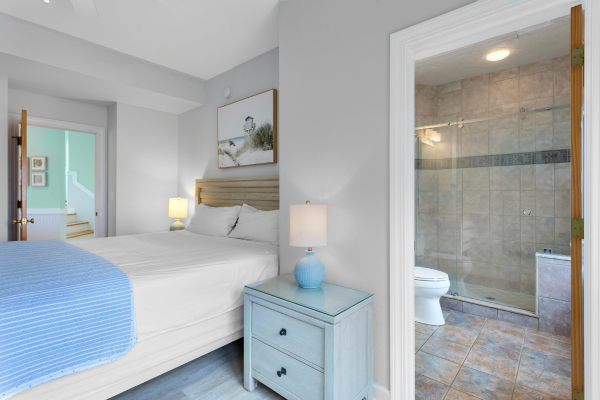What tenants really want from a HMO in 2025

Houses in Multiple Occupation (HMOs), also referred to as multi-lets or room rentals, have come a long way in the past couple of decades. Once thought of as very much at the bottom of the accommodation pile, with a reputation for being sub-standard, many HMO properties are now just as plush and desirable as the best single household lets and flat shares.
In a HMO, each individual tenant has exclusive use of their own room and then shares kitchen, toilet and often lounge and laundry facilities with the other tenants. The property is usually furnished, and bills are generally included within the rent. And while there used to be very different standards for the accommodation, depending on whether the tenants were students, casual workers or young professionals, these days good quality fixtures and furnishings and a high standard of décor are expected across the board.
Having said that, be prepared to be guided by the specific local market demand. In some areas, it’s worth having a boutique hotel feel with en-suites in as many of the rooms as possible to attract the highest-paying tenants, while in other markets where the capital values are lower, a more basic set-up might be the more sensible financial decision.
But generally, here’s what tenants expect:
Decent-sized double bedrooms
With many more freelance workers and employed people working at least part of the time from home, particularly since Covid, most tenants are looking for double-sized rooms. Aim to provide a desk, and make sure there are plenty of sockets for electrical items.
Be aware that there are also minimum room sizes for bedrooms, so it’s important to check this with the local authority.

Private bathrooms
Tenants are usually prepared to pay a little more for their own bathroom facilities – ideally an en-suite shower room – but only add one if there’s enough space and it doesn’t make the bedroom feel cramped.
A light and spacious-feeling home
One of the benefits of living in an HMO for tenants is they get the benefit of larger rooms and more communal space than they would get spending a similar amount of rent on a small one-bed flat or bedsit. So, make an effort to maximise the feeling of space by:
- Choosing light, uplifting paint colours – white eggshell for woodwork, white ceilings and the same light colour for most of the walls (so it’s easy to keep in reserve for refreshing the paintwork periodically). Then you can add some style by having a feature wall in a lounge or dining kitchen in a deep or bright hue.
- Have mirrors to bounce internal light and add depth, particularly in hallways and on landings.
- Hang pictures and mirrors in portrait orientation to give the illusion of height or landscape to add width.
- Choose wood-effect flooring with wide boards and run the same finish throughout communal areas so there’s a visual flow.
Smart home tech
One of the most important things to ensure is that the WiFi has the capacity to serve the number of tenants in the property – assuming they may all be streaming or downloading at the same time – and have signal boosters if necessary. USB ports are becoming more common in addition to traditional electrical sockets, and it’s worth considering installing keyless smart locks for individual bedroom doors that operate on codes, apps or biometrics. That makes it quick and easy to change access when one tenant moves out and you get rid of the problem of lost keys during a tenancy.
Laundry facilities
A large capacity washing machine and separate tumble drier can be considered essential these days. Ideally, aim to provide a ventilated room where tenants can dry their laundry so that it’s not hanging in their bedroom or communal areas where it could potentially cause surface mould.

Outdoor seating areas
The importance of being able to get out into the fresh air was highlighted during Covid and tenants today are certainly looking for homes with outside spaces. A lot of HMOs are former family houses that have gardens, in which case you can simply provide some comfortable garden furniture. But whatever the size or location of your HMO, it’s worth making sure all tenants have access to some kind of outdoor seating area, even if it’s just a private balcony or a small courtyard.
Secure storage
Many HMO tenants have bikes, sports equipment and other possessions that they don’t necessarily want cluttering up their bedroom. If you can offer some kind of secure storage, such as a large lockable garden shed or garage,
The more of these things you can offer, the more attractive your HMO will be to tenants. That means you should be able to fill rooms more quickly from a choice of applicants, virtually negating the impact of voids.
If you would like to find out more about the tenant demand for HMOs in your area, just get in touch with your local branch and one of the lettings team will be very happy to help.
Looking for advice?
If you're looking to let or sell your property, we can help. Get in touch with your local branch or book in for a property valuation.

Contact Us
Got a question, general enquiry or something else?
You may also like
Since we started in 1990 we have the Island covered with offices in key locations, and we can save you time and money by offering a range of services and expertise under one roof.



